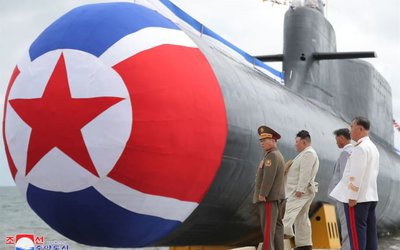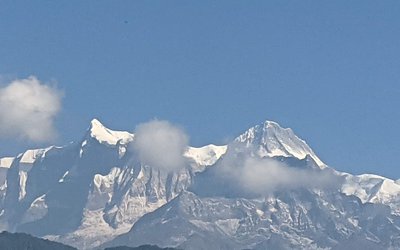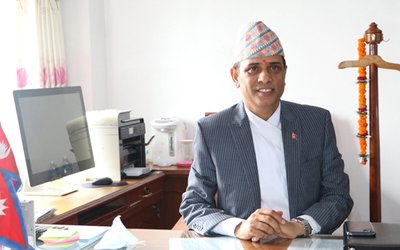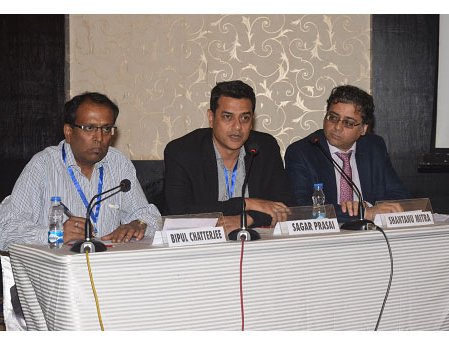
The infrastructure works being undertakento connect inland waterways of India and Bangladesh could not only ease the transport movement between the two countries but also translate into swifter and less expensive freight movement to Nepal and Bhutan, as well, experts from the four countries pointed out during an event organized in Kolkata.
Discussing the viability of inland waterways as an alternate mode of transport connectivity opening up new avenues of livelihood for the affected locals and trade facilitation opportunities in the Bangladesh, Bhutan, India and Nepal (BBIN) region, Jaipur-based civil society organization CUTS International organized a ‘Sub-Regional Dialogue on Inland Waterways’ under its project titled ‘Expanding Tradable Benefits of Trans-boundary Water: Promoting Navigational Usage of Inland Waterways in Ganga and Brahmaputra Basins’.
It was supported by The Asia Foundation under the Civil Society Fund of South Asia Water Governance Program of the United Kingdom’s Department for International Development. Aiming to create an alternate policy discourse between policy-makers, civil society and communities for enabling reform measures and better governance of inland waterways and sharing knowledge between governments and civil society on inland waterways, this sub-regional dialogue has brought together more than 80 stakeholders from governments, academia, civil society and international organizations from Bangladesh, Bhutan, India, Myanmar and Nepal.
In regard to utilising the opportunities presented
by India's investment in developing its inland waterways for the advantage of
Nepal, former commerce secretary of Nepal and trade expert Purushottam Ojha pointed
out the need to review the existing Nepal-India Treaty of Transit to include a
provision giving Nepal right to use India's inland waterways for ferrying the
cargos coming from or bound to Nepal.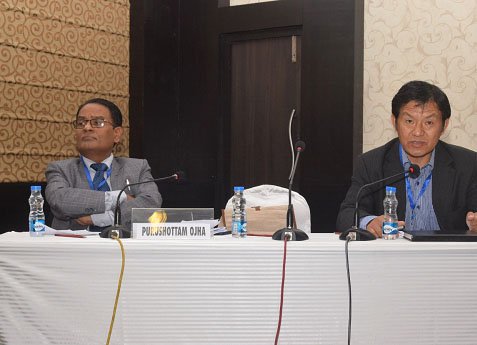
Pravir Pandey, Vice Chairman of Inland Water Transport Authority of India, Ministry of Shipping, Government of India pointed out that works are underway to encourage the use of multi modal transport service for a portion of cargo bound to Nepal through inland waterways up to Kalu Ghat Terminus from where freight could be transported on trucks to Nepali borders.
Welcoming the participants, BipulChatterjee, Executive Director, CUTS International said that over the last few years this subject has gained better political traction in the region. Development of sustainable and economically viable inland waterways sector in this sub-region can not only contribute towards achieving sustainable development goals through poverty reduction and job creation but also have the potential to make regional cooperation process more inclusive. He emphasized on localisation of civil society discourse for fostering regional cooperation in eastern South Asia.
SagarPrasai, Country Representative, The Asia Foundation, New Delhi told the audience that for a long time, South Asian countries have neglected possible tradable benefits of water. Inland waterways navigation at regional level has never come in our discussion despite having historical significance. Land-locked countries can get access to sea by using the existing waterways of neighboring countries and can gain economic benefit of regional connectivity.
ShantanuMitra, Senior Climate & Environment Advisor, DFID Asia Regional Team, British High Commission, New Delhi stressed on the need for regional connectivity through multi-modal means. Ineffective policies and under-developed supply chains are some of the major obstacles in the way of regional cooperation. Thus, regional initiatives like this are particularly important for land-locked countries.
Masayuki Taga, Consul General, Japan Consulate, Kolkata said that since India and Japan are working closely to link India’s Act East policy with Japan’s policies to improve connectivity in the region as a whole, thus development of inland waterways sector in this region will work as a base for improving and expanding Japan’s production and supply chains in the long term. The development of this sector also requires mega investments in infrastructure and Japan can play a vital role in that regard.
According to Bruce Bucknell, British Deputy High Commissioner, Kolkata, it is necessary to move away from zero-sum game and focus more on mutual benefits from regional cooperation. For this cross-border barriers need to be removed, sharing of data related to rivers, sea and shores needs to be enhanced. Apart from them, integrated transport policy is required which can also localize the economic benefits similar to experiences of some of the developed countries. West Bengal in particular has a lot of potential in terms of cultural and historical places such as Sunderbans, which can be linked to cross-border tourism activities through inland waterways.
Prof. Atiur Rahman, Professor, Department of Development Studies, University of Dhaka and Chairman, Unnayan Shamannay, Bangladesh asserted by quoting RabindraNath Tagore that rivers are indeed touching stone of civilizations. If rivers recede, culture recedes. In the past, we have not done enough analytical work on comparative advantages of rivers, inland waterways and other modes of transportation. However, governments have now realized the potential benefits of using waterways for their economies and local communities. Technical issues such as custom, security and other bureaucratic hurdles needs to be solved with mutual discussions and such dialogues will help in changing the mind set as well as improving the discourse around waterways.
- TANAHU HYDROPOWER PROEJCT: A Significant Achievement
- Apr 15, 2024
- AMBASSADOR HANAN GODAR: Sharing Pain With A Nepali Family
- Mar 30, 2024
- VISIT OF KfW AND EIB TO NEPAL : Mission Matters
- Mar 25, 2024
- NEPAL BRITAIN SOCIETY: Pratima Pande's Leadership
- Mar 24, 2024
- NEPAL ARMY DAY: Time To Recall Glory
- Mar 15, 2024










